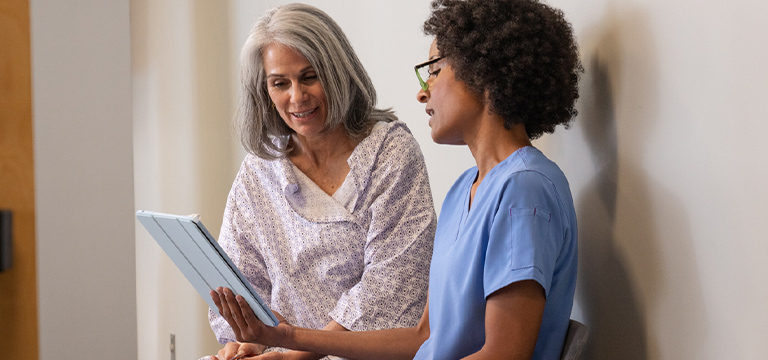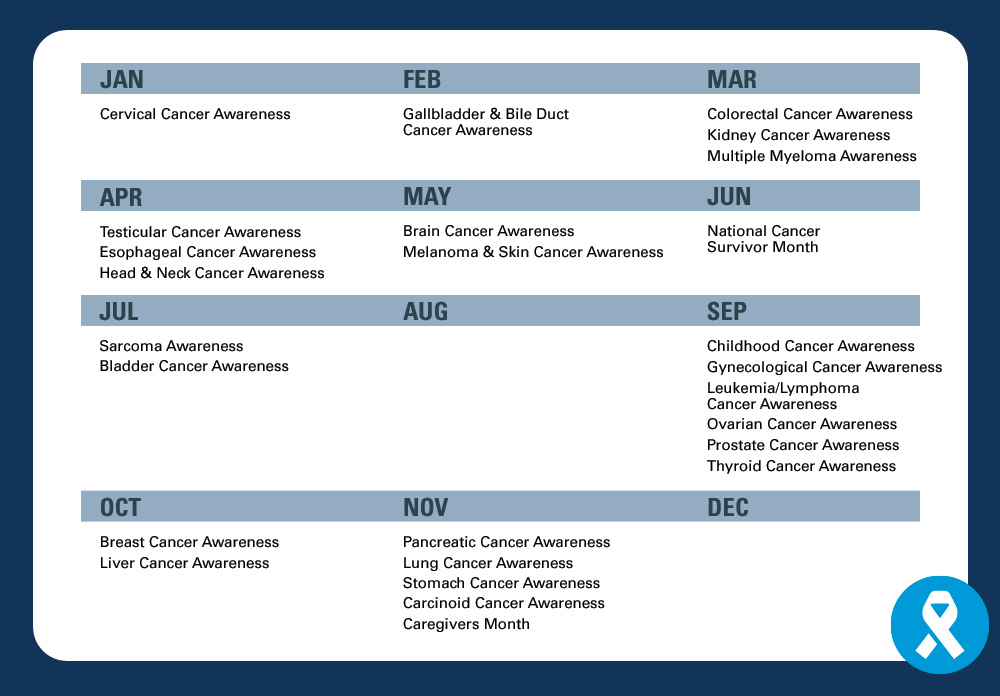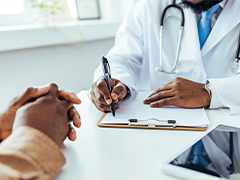The Power of Cancer Awareness

We have all been affected in some way by cancer. Whether a family member, loved one or friend has suffered from cancer, the physical and emotional toll of this disease cannot be understated.
One of the most effective ways of fighting cancer is simple: awareness. Of course, you are aware of the dangers of cancer, but in this case, awareness should encompass cancer prevention, symptoms and how to get help.
Cancer prevention
There are a number of critical lifestyle choices that can lower your risk of cancer.
- Avoid tobacco use. Don’t smoke cigarettes or use any other form of tobacco—including smokeless. Also, be sure to steer clear of secondhand smoke.
- Maintain a healthy weight through a balanced diet and exercise. If you are overweight, make small adjustments to incorporate healthy food, the right portion sizes and more physical activity. A little goes a long way.
- Always wear sunscreen, even if it’s a cloudy day.
- It’s recommended to not drink alcohol. If you do drink, limit the amount to one drink per day for women or two drinks per day for men.
Cancer Screenings
Colon cancer
Routine colorectal cancer screenings should start at age 45. Routine screenings help doctors detect it early and begin treatment when it’s usually most effective. Learn more about colorectal screenings here.
Breast cancer
Women ages 50-74 should receive screening mammography every two years. For ages 75 and older, there is no recommended routine for breast cancer screening mammograms. No matter your age, be sure to talk to your doctor about your medical history and breast cancer risk.
Cervical cancer
Cervical cancer occurs most often in women over age 30. Regular screenings, along with the HPV vaccine, can help prevent cervical cancer. A pap smear and HPV test can help find it early when treatment is most effective.
HPV infection causes most cervical cancer cases. The infection is preventable with HPV vaccines. Talk to your doctor and learn more by clicking here.
Cancer Symptoms
There is not one catch-all symptom of cancer. In fact, most symptoms are not directly caused by cancer. But if you experience a symptom that feels out of the ordinary or simply won’t go away, see your doctor.
Symptoms like fever, extreme fatigue or weight loss could be serious because cancer cells tend to drain the body’s energy reserves. It can also cause the immune system to sound the alarm that something is wrong, which can lead to fever or fatigue.
No matter what, see your doctor if you feel new or worsening symptoms. Whether it is caused by cancer or another condition, your doctor will recommend a course of treatment.
Cancer awareness months

How to get help
All Service Benefit Plan members can access a wide range of no-cost preventive care services when seeing a Preferred provider. Wondering which preventive care services you need? Ask your primary care provider. Click hereto find a provider near you.
Sources:
cancer.org/treatment/understanding-your-diagnosis/signs-and-symptoms-of-cancer.html
cancer.org/healthy/find-cancer-early/screening-recommendations-by-age.html
aacr.org/patients-caregivers/awareness-months/
cdc.gov/cancer/cervical/index.htm
uspreventiveservicestaskforce.org/uspstf/recommendation/breast-cancer-screening
click

